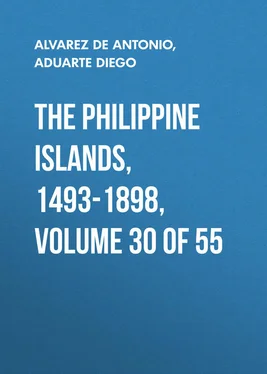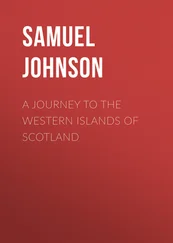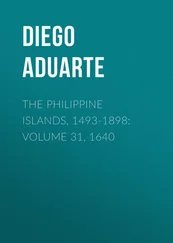Antonio Alvarez de Abreu - The Philippine Islands, 1493-1898, Volume 30 of 55
Здесь есть возможность читать онлайн «Antonio Alvarez de Abreu - The Philippine Islands, 1493-1898, Volume 30 of 55» — ознакомительный отрывок электронной книги совершенно бесплатно, а после прочтения отрывка купить полную версию. В некоторых случаях можно слушать аудио, скачать через торрент в формате fb2 и присутствует краткое содержание. Жанр: foreign_antique, foreign_prose, Историческая проза, на английском языке. Описание произведения, (предисловие) а так же отзывы посетителей доступны на портале библиотеки ЛибКат.
- Название:The Philippine Islands, 1493-1898, Volume 30 of 55
- Автор:
- Жанр:
- Год:неизвестен
- ISBN:нет данных
- Рейтинг книги:4 / 5. Голосов: 1
-
Избранное:Добавить в избранное
- Отзывы:
-
Ваша оценка:
- 80
- 1
- 2
- 3
- 4
- 5
The Philippine Islands, 1493-1898, Volume 30 of 55: краткое содержание, описание и аннотация
Предлагаем к чтению аннотацию, описание, краткое содержание или предисловие (зависит от того, что написал сам автор книги «The Philippine Islands, 1493-1898, Volume 30 of 55»). Если вы не нашли необходимую информацию о книге — напишите в комментариях, мы постараемся отыскать её.
The Philippine Islands, 1493-1898, Volume 30 of 55 — читать онлайн ознакомительный отрывок
Ниже представлен текст книги, разбитый по страницам. Система сохранения места последней прочитанной страницы, позволяет с удобством читать онлайн бесплатно книгу «The Philippine Islands, 1493-1898, Volume 30 of 55», без необходимости каждый раз заново искать на чём Вы остановились. Поставьте закладку, и сможете в любой момент перейти на страницу, на которой закончили чтение.
Интервал:
Закладка:
Another: because this becomes more expedient in the present emergencies, in which those kingdoms desire to help meet the new impositions which have been levied in all of them since the year 1630: the union of the armies, the windward armada, the sale of new offices, the half-annat, the stamped paper, the increase of the avería on both seas, the incorporation and reduction of encomiendas in both kingdoms, and other matters, which are well known to your illustrious Lordship. And if [his Majesty’s] vassals are not favored in these exigencies by facilitating their commerce, it will be impossible for them, even though they desire it (as they all do), to aid in bearing so great a load. 13 13 Under the rule of Felipe III and Felipe IV, the economic and financial affairs of Spain fell into a ruinous condition. The indolence and incompetency of those monarchs, the influence exercised over them by unscrupulous favorites, the rapid increase of absolutism and bureaucracy, the undue privileges accorded to the nobility and clergy, costly and useless wars, the extravagance and corruption which prevailed in the court and in the administration of the entire kingdom and the expulsion of the Moriscos – all these causes quickly brought on an enormous national debt, the impoverishment of the common people, depopulation of large districts, almost the ruin of manufacture and the like industries, the oppression of the poor, the trampling down of the national liberties, the decline of Spain’s naval and military power, and many other evils. The treasures of the Indias did not suffice to maintain the nation, and even caused some of its woes; and the reckless mismanagement of its revenues caused enormous deficits, which its rulers attempted to meet by imposing more and heavier taxes, duties, and contributions upon a people already staggering under their grievous burdens. The impositions named in the text are but a few of those levied at that time; and the colonies were compelled to bear their share of the burden carried by the mother-country. See the excellent survey of this period in Spanish history, and of conditions political, administrative, social, and economic, with bibliography of the subject, in Lavisse and Rambaud’s Histoire générale (Paris, 1893–1901), v, pp. 649–682.
Another: because this permission was granted to Perù in recompense for what was taken away from that country in the goods from China. That trade was free, as I have said, and those stuffs were shipped from Nueva España in abundance; and thus the provinces of Perù experienced great relief, as the Chinese goods were so cheap that those of Castilla were estimated at three times their price. It was expedient to prohibit the Chinese goods, in order that the commerce of España might not diminish for lack of the wealth of Perù. And, since the welfare of some vassals is not to be gained by destroying the others, in order to repair the loss which was caused by this prohibition to the vassals of Perù permission was granted to them for 200,000 ducados in goods from Nueva España, which are not so cheap as those of China, nor so dear as those of Castilla. This is stated in the royal decrees for the concession, and is inferred from their being of the same year and date as those for the prohibition. If this was the cause, and now it does not cease to operate, but rather is still more active – on account of the commodities which go from España having greatly increased in price, the land being poorer, and the impositions, expenses, and losses being heavier – it may be easily understood that this permission ought not to be refused.
Again: because the principal argument which gave cause for the suspension of this permission was the representation of glaring infractions of law therein. Sufficient refutations to these were made in the said memorial, from no. 94 to 117; but as there they are mingled with those in the commerce of the islands, answer is [here] made to the former more than to the latter (although the one depends on the other). The exaggerated statement is made that the ship which goes every year from Perù to Acapulco carries, instead of the 200,000 ducados of the permission, three millions – an enlargement which is an act of audacity deserving punishment rather than complaisance. [This is preposterous: ] first, because even in transgressions of this character there is usually some moderation; and never before has it been seen, heard, or supposed that where two [pesos’ worth] were permitted the amount concealed would reach thirty. Second, this ship which went to Acapulco was one of 200 toneladas. The galleons on the India route, which go only to carry silver, and are of 600 to 800 toneladas, do not carry more than one million each year; and the capitana and the almiranta, which are larger, carry a little more. Therefore, if a galleon of 800 toneladas does not carry a million and a half, how could a ship of 200 toneladas carry three millions? Third, it may be asked why all that money went to Nueva España. Reply will be made, “with the royal decree for the permission,” and with the argument (which is very evident) that the money went thither for investment in merchandise, and not to be left there, or to come by that route to España; for the one would be folly for its owners, and the other a blunder, since it would involve greater costs and risks. Then if (as is evident) the money must return invested, and in the same ship, or in another of equal burden, who ever said or imagined that that ship, with a burden of 200 toneladas, can carry the investments of three millions? If this sum be in silver, it is impossible to do so, as is proved; but the same is true if it be in merchandise. The ships which come from Eastern India to Lisboa are of 1,500 toneladas, and some of 2,000; and whatever goes beyond a million in the entire lading is very profitable, and is largely composed of diamonds, rubies, civet, and musk, commodities which are not bulky. Then how could a ship of 200 toneladas carry a cargo of taffetas, velvets, silk in skeins, coverlets, beds, tents, cabinets, and other like articles, to the extent of three millions of investment, which in Perù would be four or five millions? Fourth, because it cannot be said that the ship, since it does not carry three millions of silver, will carry two millions, or one – which also is a great transgression of the limit set. It is proved by experience that neither three nor two millions, nor one, nor [even] half a million can be invested in [the cargo of] a ship of 200 toneladas – which with 200,000 ducados of silver converted into merchandise (which in Perù will be worth 300,000), and with the people, and supplies for three months (the time spent in going from Acapulco to Callao de Lima) will sail so well laden that no considerable quantity can be carried outside of the registry. Fifth, and last, because if this ship carried three millions, we must find a source for this silver, and a halting-place for it. There is no source [for that amount], because the silver produced from the mines of Perù, whether computed at a little more or less, is shipped to España every year, without an error of three millions. But if Perù retained so much silver, if from the year 1636 no ship has gone to Acapulco (and it is not to be supposed that the merchants keep their funds idle) from that time the exports from Perù would be heavier; but if we abide by experience (which is in this matter the best proof), the opposite is well-known. As little is a halting-place found for that silver, since [what there is] remains in Perù, on account of not having permission. Finally, we say, and it is known, that no more silver comes [from Perù] than did formerly, nor even as much. When it was going to Nueva España, the necessary effect of carrying three millions would have been to engross both the commerce of that country with Castilla and that with Philipinas; that those two should share the greater part of the silver; and that, when it ceased, both should feel the lack. The trade of Philipinas has had less return than formerly, not for lack of silver, but because Don Pedro de Quiroga did not give them permission to ship the returns for two years, and therefore the silver remained in Nueva España for that reason. As little has the commerce of Castilla experienced a considerable reduction, and not one in proportion to the lack of Perù’s millions; and thus is proved that this permission for Perù never had the infringements that are represented, either in the quantity that is stated, or in any other considerable amount. [It is clear] that it ought to be decreed that, since the [term of the] suspension imposed upon that commerce is completed, it shall again proceed as is demanded in behalf of Philipinas, and has been requested on behalf of Mexico and Lima – the matter being referred to the investigation of your illustrious Lordship, who, after considering the reasons here mentioned, will decide it with the perspicuity and equity that the matter demands.
Читать дальшеИнтервал:
Закладка:
Похожие книги на «The Philippine Islands, 1493-1898, Volume 30 of 55»
Представляем Вашему вниманию похожие книги на «The Philippine Islands, 1493-1898, Volume 30 of 55» списком для выбора. Мы отобрали схожую по названию и смыслу литературу в надежде предоставить читателям больше вариантов отыскать новые, интересные, ещё непрочитанные произведения.
Обсуждение, отзывы о книге «The Philippine Islands, 1493-1898, Volume 30 of 55» и просто собственные мнения читателей. Оставьте ваши комментарии, напишите, что Вы думаете о произведении, его смысле или главных героях. Укажите что конкретно понравилось, а что нет, и почему Вы так считаете.












